
Every young person has to make life-changing decisions about their sexual and reproductive health. However many of them cannot access clear, evidence-based information. IPPF's comprehensive sexuality education programmes enable young people to make informed decisions about their sexuality and health, while building life skills and promoting gender equality.
Articles about Comprehensive Sex Education
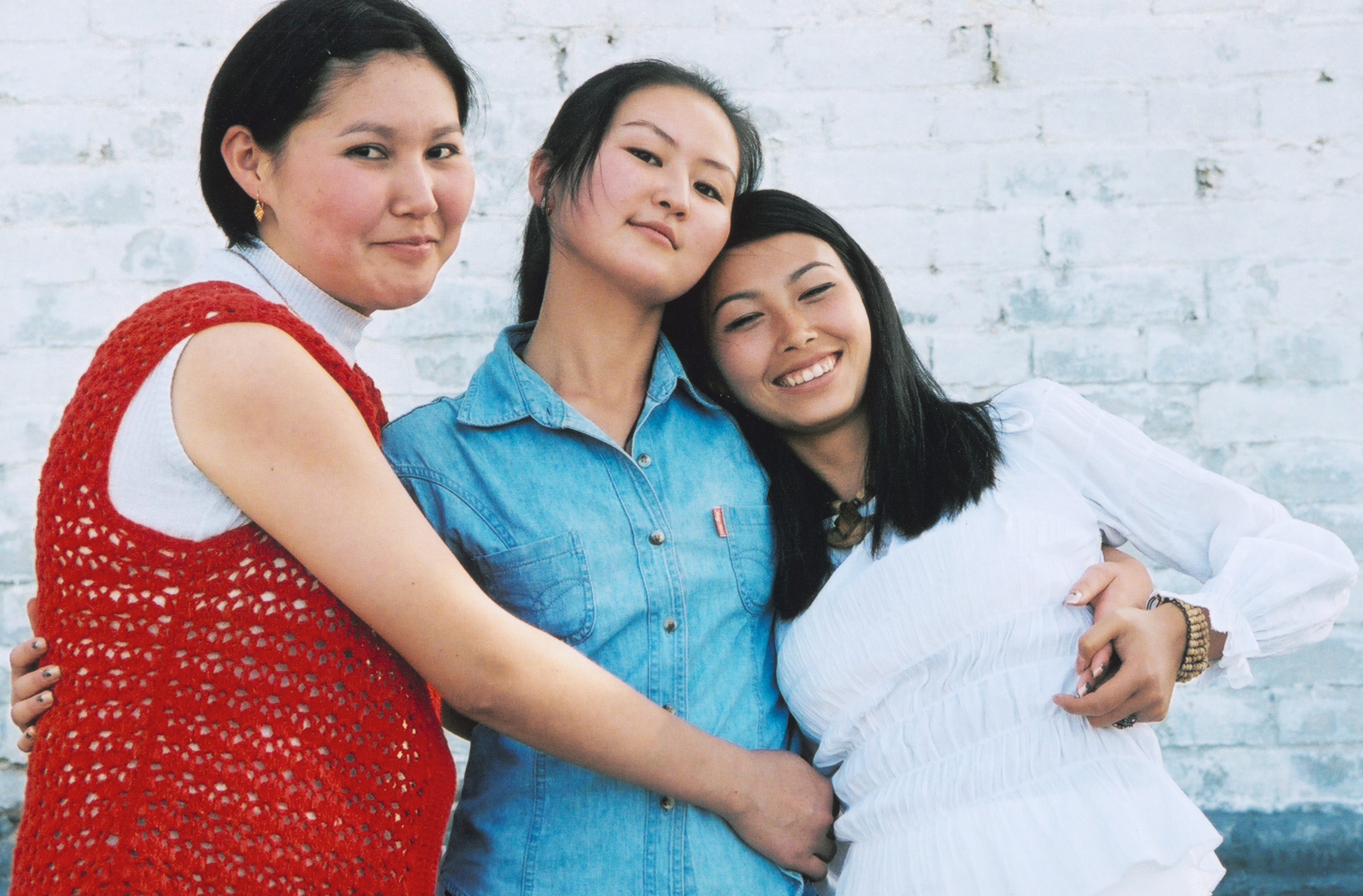
IPPF welcomes new UN commentary on indivisible right to sexual and reproductive health
On International Women’s Day, the International Planned Parenthood Federation (IPPF) has welcomed a new commentary from UN experts which says that the right to sexual and reproductive health is indivisible from other human rights. “It is absolutely right for the Committee to address the issue of sexual and reproductive health specifically, today of all days,” said Tewodros Melesse, IPPF’s Director General. “Sadly millions of women are still denied their basic rights because they are poor, because they suffer discrimination or because they lack legal protection.” The 18 independent members of the Committee on Economic, Social and Cultural Rights said that the right to sexual and reproductive health was not only an integral part of the general right to health, but fundamentally linked to the enjoyment of many other human rights, including the rights to education, work and equality. They said that a lack of care for mothers in childbirth or a lack of access to safe abortion, often leading to maternal death, constitutes a violation of the right to life, and in certain circumstances can amount to torture. “No woman should die in childbirth in 2016 because of a lack of adequate care,” said Mr Melesse. “We know that access to safe abortion saves women’s lives, yet millions are denied that right.” IPPF is a network of sexual and reproductive health and rights organisations in 170 countries that are equipped to monitor and respond to any member of the public who wants information, services, contraception and access to abortion and are available to serve at the first point of response. For further information and interviews contact press office 02079398227
Young at Heart
The world is home to the largest generation of young people in history. They are diverse, they have opportunities, but they also face immense obstacles in their lives. Young people and adolescents need to be able to make informed decisions and have access to sexual and reproductive health education, information and services. IPPF’s journey of youth services and participation is illustrated by the timeline of events on this page. Our approach has changed radically, from ‘not turning young people away’ to providing high quality, standardized youth-friendly programmes. Our performance of the past decade tells a powerful story of this increasing commitment to young people. In 2005, 25% of our services were provided to young people, and since then the number of services provided to young people has grown steadily. Of the 86.9 million services provided by IPPF in 2013, almost every second one was to a young person. IPPF’s new Strategic Framework (2016 -2022) shows how the Federation is embracing young people as partners and moving to a more youth-centred approach. By expanding our commitment to youth-friendliness and evolving to ensure that young people are truly at the centre of everything we do, IPPF will continue to set an example for meaningful youth involvement. By genuinely focusing on young people’s lives and requirements, from their own perspectives, we can deliver services, programmes and interventions that are truly shaped by them, and thus relevant, inclusive and effective. This document is an introduction for decision makers, service providers and youth leaders within the Federation on how IPPF can build on its legacy and transition to a youth-centred approach. It addresses the questions: what does this new thinking include? What does it mean in practice? How should we implement it? How should we measure progress?
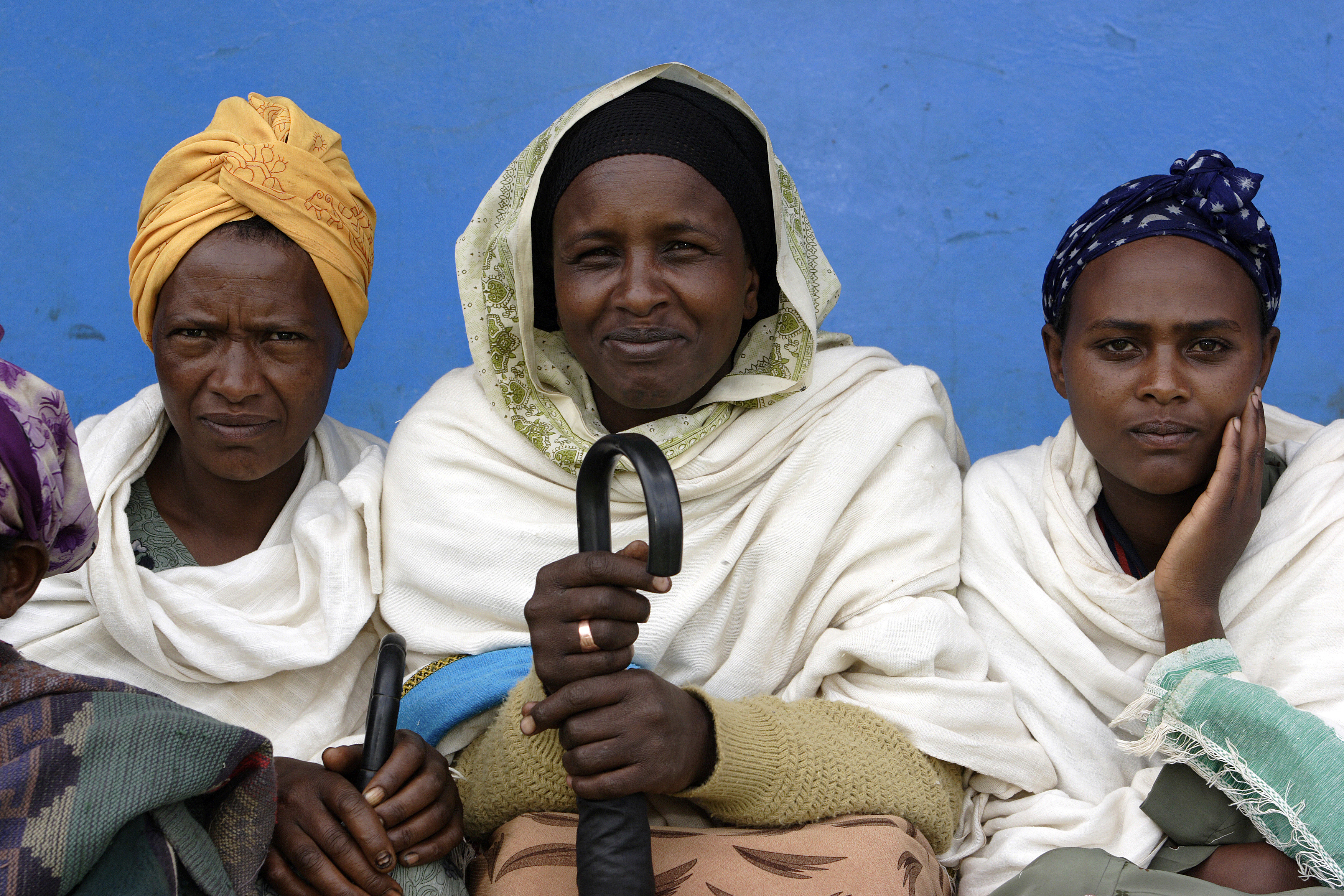
Pledging to reach new contraceptive users: Turning Family Planning into Future Planning for 60 Million Women
The International Planned Parenthood Federation (IPPF) announced its most ambitious pledge ever: to realize the human rights of a further 60 million women to choose freely the size of their families. The pledge was unveiled as IPPF's global contribution to the Family Planning 2020 goal at the International Family Planning Conference in Indonesia today. IPPF is committed to working with Family Planning 2020 and the global family planning community to reach the goal of ensuring 120 million additional women have access to family planning by 2020. The Federation, with the world's largest non-governmental family planning service delivery network, has driven its own performance since the London Summit reaching 15 million new users of modern family planning. IPPF is now upwardly revised its pledged contribution towards the global FP2020 goal. Thank you to @ippf for pledge to serve 60M NEW users of contraception to meet #FP2020 goals! #ICFP — Family Planning 2020 (@FP2020Global) January 28, 2016 Tewodros Melesse, IPPF Director General, announcing the pledge, said “This is not a game of numbers. For us, it's very simple, it can only be about putting women at the front and centre of what we do. I'm delighted by what we have achieved and that we can make this significant and increased contribution through this pledge. Since 2012, IPPF's total reported client numbers increased by nearly 40 per cent. This was achieved by expanding our client base, not by changing who we serve. We have raised investment in family planning and improved our overall performance." Building on this success, IPPF has set an even more ambitious target for new users to contraception. Between 2015 and 2020 IPPF pledges to reach a further 45 million new users in the FP2020 focus countries. This will mean that IPPF will serve a total of 60 million new users between 2012 and 2020, a major contribution towards the FP2020 goal. Dr. Ariel Pablos-Méndez, Assistant Administrator for Global Health and Child and Maternal Survival Coordinator, Global Health Bureau, USAID said on IPPF's announcement,'Community driven approaches increase access for new users to family planning. When offered alongside a basket of primary health services - like those provided by IPPF - poor, young and rural women and men can get the voluntary family planning and other health programs that focus on their needs. This client-focused approach will get us another step closer to our FP 2020 goals and ultimately universal health coverage." “FP2020 congratulates IPPF on this ambitious renewed commitment to advancing the rights of women and girls around the world to decide for themselves when and how many children to have,” said Beth Schlachter, FP2020 Executive Director. “IPPF has been a leader in providing modern contraception to women and girls for decades, and as key partners in the global FP2020 movement they are helping ensure that family planning remains a central part of the global development agenda as we work towards achieving the Sustainable Development Goals and universal access.” IPPF is on target to achieve our goal of doubling the number of services provided by 2015. This is a milestone towards the Federation's commitment to treble the number of its high-impact life-saving and changing sexual and reproductive health services provided by 2020. Between 2012 and 2014, IPPF achieved a significant increase in access for new users of modern contraception. In 59 of the 69 FP2020 focus countries where IPPF is operational, the Federation provided family planning services to 15 million new users in just three years. Our Strategic Framework which started in January 2016, renews and strengthens its commitment to support the rights of women and girls to decide freely whether, when and how many children to have. IPPF will deliver high impact, quality, rights-based, integrated sexual and reproductive health services, including packages that address family planning, safe abortion, prenatal care, STIs/HIV, sexual and gender-based violence and cervical cancer. IPPF will optimize the number of people it can serve by increasing operational effectiveness, expanding provision in humanitarian emergencies and increasing national and global income to provide the increased services. The Federation will also enable the provision of services by other public and private health providers.
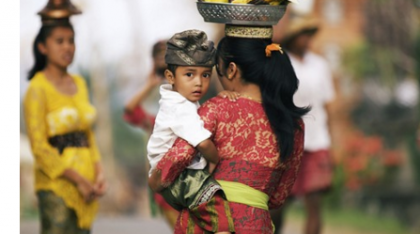
South-South Exchange on Family Planning at the ICFP
Organized by the Gates Institute, the session at the International Family Planning Conference on ‘South-South Exchange on Family Planning’ focussed on shared learning between countries on family planning needs and how to move beyond dialogue to action. The questions facing the panel were: how can knowledge and experience sharing among South partners increase access to meet the need for family planning? How can the family planning sector work to strengthen the effectiveness and accountability of multilateral development banks? And how can the extension of the G20 and middle income countries’ development agenda best support the implementation of the Sustainable Development Goals? Moderating, Tewodros Melesse mentioned the importance of the Ouagadougou Partnership in drawing increased capacity to an underserved region of Africa and highlighted the tremendous SRH vulnerabilities of Francophone Western Africa. He drew attention to the success of IPPF’s African Regional Office approach to South-to-South learning through Member Association Learning Centre Models, as well as IPPF’s leadership in reviewing the Maputo Plan of Action, which will lead to a recommitment of the African Union to the Maputo Plan of Action in June 2016 at the AU Summit. Tewodros also highlighted IPPF’s collaborations with China and UNFPA, and the work of IPPF’s humanitarian programme - SPRINT - enables South to South cooperation to work across different countries – wherever there’s a crisis – is a vehicle of some sort for supporting learning between countries for example on preparedness and coping with crises. On the panel were Hongtao Hu, Commissioner, National Health and Family Planning Commission; Arie Hoekman, UNFPA Country Representative; Sahlu Haile, Senior Fellow, Packard Foundation; Baochang Gu, Professor, Renmin University.

Building a movement for change
The International Planned Parenthood Federation (IPPF) today launched its new seven year Strategic Framework which will renew and strengthen its commitment to support the rights of women and girls to decide freely and for themselves whether, when and how many children to have. The Framework was launched at the International Family Planning conference in Indonesia. The Strategic Framework will deliver high impact, quality, rights-based, integrated sexual and reproductive health and rights services – including family planning, safe abortion, HIV, sexual and gender-based violence and reproductive cancers – and support further service provision by public and private health providers. It will help IPPF maximize the number of people it can serve by increasing operational effectiveness, expanding our provision in humanitarian emergencies and increasing national and global income to meet demand. IPPF's Director General, Tewodros Melesse, said launching the Framework “As the largest civil society provider of family planning, we can help meet many of the sexual and reproductive health needs of the Sustainable Development Goals at grassroots level. The new Strategic Framework will help us be more agile and accountable as a Federation, able to make a real impact on sexual and reproductive health and rights on the ground. Our new Framework was developed by our members from across the globe and it will guide their and partners work for the next seven years. At the high level reception with Benoit Kalasa from UNFPA, Dr. Kesete-birhan Admasu the Health Minister from Ethiopia and youth advocate Priya Kath, the IPPF’s Director General Tewodros Melesse announced that it had revised its efforts on family planning to tackle the global goal to reach an additional 120 Million women. IPPF's President, Naomi Seboni said chairing the event, “Every year we help millions of people – last year, that number was almost 62 million. We’re on track to meet our commitments, and we are holding governments to account for the pledges they made. Our new pledge which we will announce on Thursday will help achieve some of the ambition of FP2020 and the new Sustainable Development Goals.” The Strategic Framework is a global joint effort if the ambition of the new goals is to meet the needs of the most vulnerable people. It’s a vision that IPPF is excited about and proud of, that lays out its priorities for the next seven years in four clear outcomes. To get 100 governments to respect, protect and fulfil sexual and reproductive rights and gender equality by galvanising to secure legislative, policy and practice improvements. To engage women and youth leaders as advocates for change. To empower one billion people to act freely on their sexual and reproductive health and rights by 2022. To deliver two billion quality integrated sexual and reproductive health services. We will deliver rights-based services including safe abortion and HIV and enable services through public and private health providers. Over the next seven years IPPF is forging ahead to build a higher performing, accountable and united federation. The Federation is focused to enhance operational effectiveness and double national and global income. It will also build its advocacy and voice by growing its volunteer and activist supporter base. IPPF's mission is to lead a locally owned, globally connected civil society movement that provides and enables services and champions sexual and reproductive health and rights for all, especially the underserved.

IPPF - UN MOUVEMENT POUR LE CHANGEMENT
Le cadre stratégique 2016–2022 constitue une vision à la fois audacieuse et ambitieuse des projets de l’IPPF, la Fédération internationale pour la planification familiale, et des moyens de les concrétiser au cours des sept prochaines années. Approuvé en novembre 2014 par le Conseil de gouvernance de l’IPPF, la plus haute instance décisionnelle de la Fédération, ce cadre représente l’aboutissement d’un vaste processus consultatif sollicitant la collaboration d’associations membres, de partenaires et de bailleurs de fonds à l’échelle mondiale. Notre stratégie répond aux tendances sociales, politiques et démographiques qui se manifestent dans le monde entier. Ces tendances peuvent se résumer ainsi: les attentes et le potentiel de la génération la plus nombreuse de jeunes de tous les temps; de profondes inégalités sociales et économiques persistantes, et notamment la discrimination contre les filles et les femmes; ainsi que l’opposition qui menace les avancées réalisées dans le domaine des droits humains. Ce cadre s’appuie aussi sur des évaluations et des analyses de notre travail: nos forces et faiblesses, nos capacités, nos ressources et nos réseaux. Le cadre stratégique de l’IPPF établit les priorités qui permettront à la Fédération d’avoir de l’impact en tant que mouvement axé sur la santé et les droits sexuels et reproductifs (SDSR) au cours des sept années à venir. Il guidera les associations membres nationales et leurs partenaires en vue d’élaborer des stratégies spécifiques à leurs pays, en fonction de leurs ressources et adaptées pour se mettre au service des groupes les plus marginalisés sur le plan local. Il apporte aussi au Secrétariat un axe d’action quant à son influence internationale et dans son soutien aux associations membres. Les associations membres seront tenues de rendre compte de leurs résultats une fois par an, qui seront compilés dans un tableau de bord mondial pour mesurer les progrès de la mise en pratique du cadre stratégique. En se dotant de cet outil essentiel, l’IPPF se donne les moyens d’aller de l’avant et de tenir ses promesses. En tant que chef de file du mouvement sur la santé et les droits sexuels et reproductifs, nous aiderons à unir les actions et les accomplissements de défenseurs de la SSR dans le monde entier, afin de changer de manière radicale la manière dont la santé et les droits sexuels et reproductifs sont appréhendés dans le monde entier.
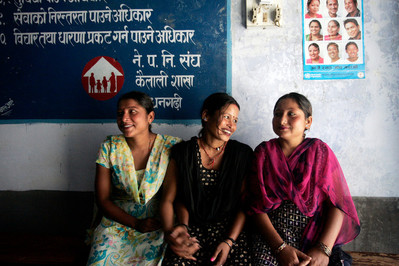
Family Planning Report 2016
IPPF is committed to expanding access to, and increasing methods of, family planning. This includes universal access to contraception. In our approach we are dedicated to increasing new users, being youth centred and reaching the under-served.

Sustainable Development Goals: A SRHR CSO guide for national implementation
The Sustainable Development Goals (SDGs) are a framework of 17 goals and 169 targets across social, economic and environmental areas of sustainable development, which United Nations (UN) Member States have committed to making a reality over the next 15 years. The SDGs are to succeed the Millennium Development Goals (MDGs), which expire at the end of 2015, but are much broader in their scope. Unlike the MDGs, which were focussed on social issues, the SDGs set out targets across all three dimensions – social, economic and environmental – of sustainable development. Furthermore, while the MDGs were targeted at developing countries, the SDGs are applicable to all countries. The SDGs form part of the 2030 Agenda for Sustainable Development which UN Member States adopted at the UN Sustainable Development Summit in September 2015. The adoption of the Agenda is the culmination of a lengthy process of intergovernmental negotiations and consultations that lasted nearly three years. The outcome document of the process, ‘Transforming Our World: The 2030 Agenda for Sustainable Development’, consists of a short preamble, a declaration (outlining the vision and principles underlying the Agenda), the SDGs and accompanying targets, as well as sections on the means of implementation and the follow-up and review of the Agenda. The 2030 Agenda is an important political consensus document declaring UN Member States’ intent to work collectively towards achieving people-centred sustainable development over the next 15 years. The 2030 Agenda can be expected to affect the policy and funding priorities of both implementing governments and donors during this time, leading to a channelling of global development funding to the areas reflected in the goals and targets and influencing national development strategies and programming. This will present important opportunities for both advocates and service providers of sexual and reproductive health and rights (SRHR).
Inside and Out: Comprehensive Sexuality Education (CSE) Assessment Tool
Comprehensive, gender-sensitive, rights-based sexuality education (CSE) is an essential component of IPPF’s youth programme strategy. This tool is available in English, Spanish and French. Developed in partnership with UNESCO, IPPF’s CSE assessment tool Inside & Out enables Civil Society Organisations to assess the quality and comprehensiveness of their CSE programmes so that they can deliver high-quality rights-based CSE to adolescents and young people, especially in non-formal education settings. It includes analysis of language and messaging, programme development, educator training, interventions and national level health, demographic and social data, with a strong gender focus. The standards are based on IPPF’s Framework for Comprehensive Sexuality Education and the content assessed relates to IPPF’s seven components of CSE including; gender, SRH and HIV, sexual rights and citizenship, pleasure, violence, diversity and relationships. The tool also reflects IPPF and Pop Council’s It’s All One Curriculum. The purpose of Inside & Out is: To review and assess the comprehensiveness and quality of sexuality education programmes both inside and outside school setting (especially programmes run by civil society) based on international evidence and standards of good practice; To generate data that can inform and guide the development, improvement or reform of sexuality education programmes; To assess the relevance of sexuality education programmes in relation to national health, demographic and other social criteria (notably gender); To inform debate and advocacy by generating data on the state of sexuality education that is understandable, easy to analyse and accessible to different audiences; To provide a standardized assessment of sexuality education programmes. Please contact IPPF’s Adolescent, Gender and Rights team for any guidance and support on using the tool at [email protected].
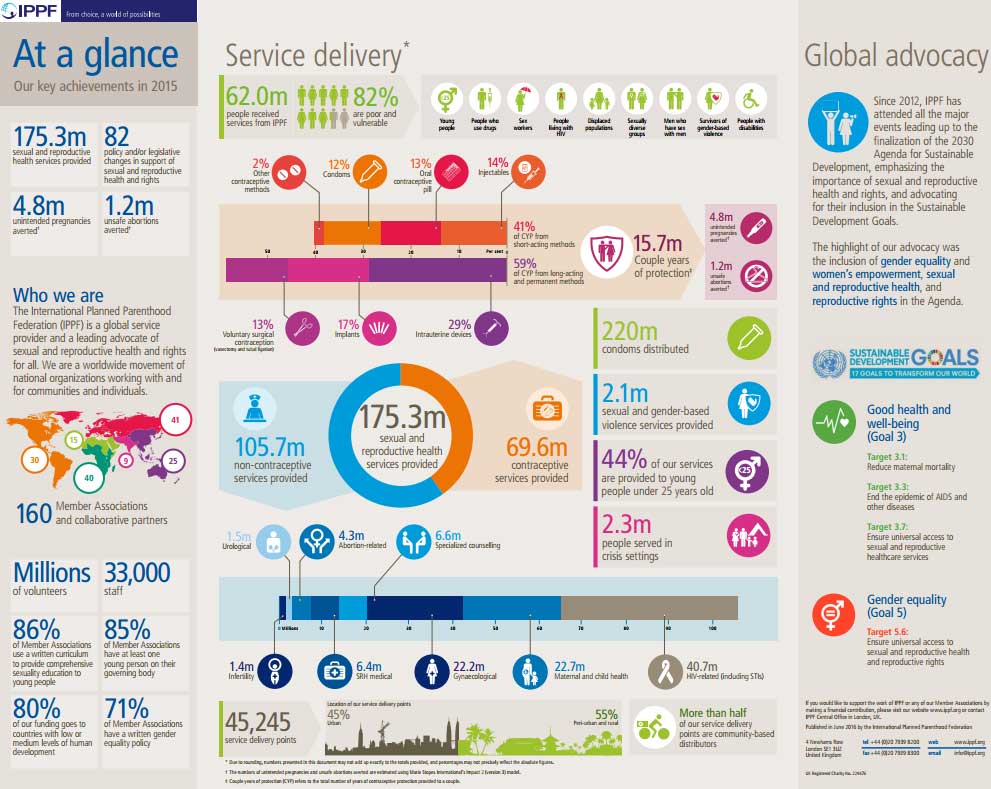
At a Glance 2014
Key facts and figures highlighting IPPF's achievements in 2014.
Pagination
- Previous page
- Page 13
- Next page






